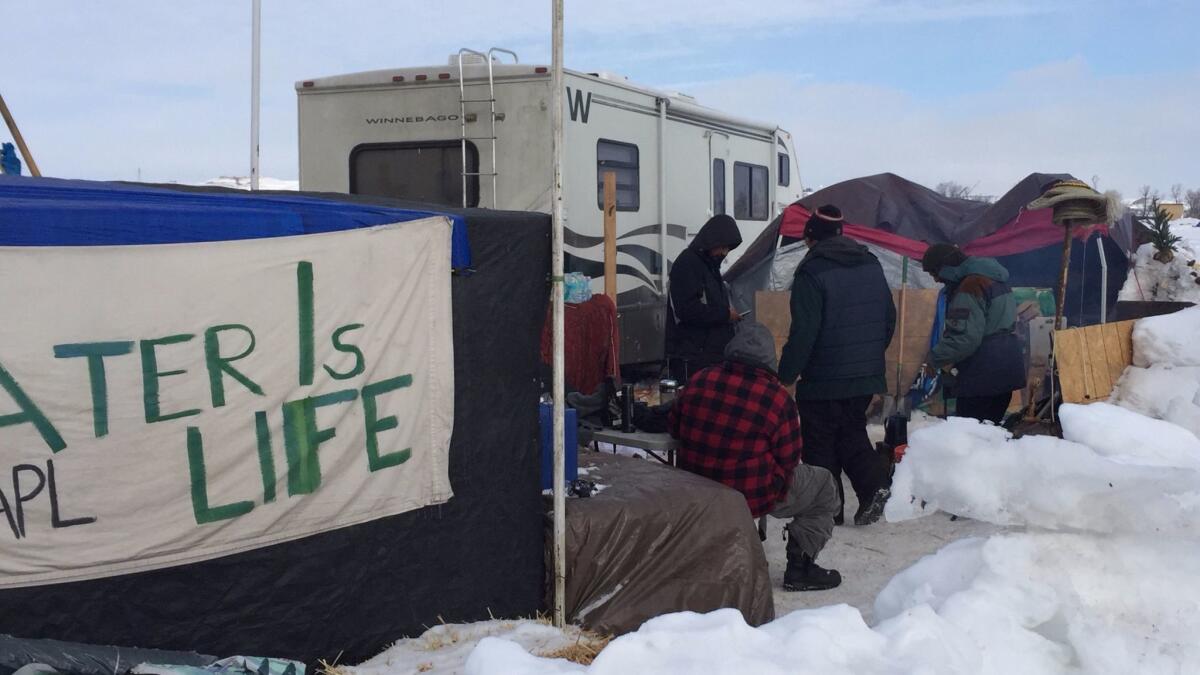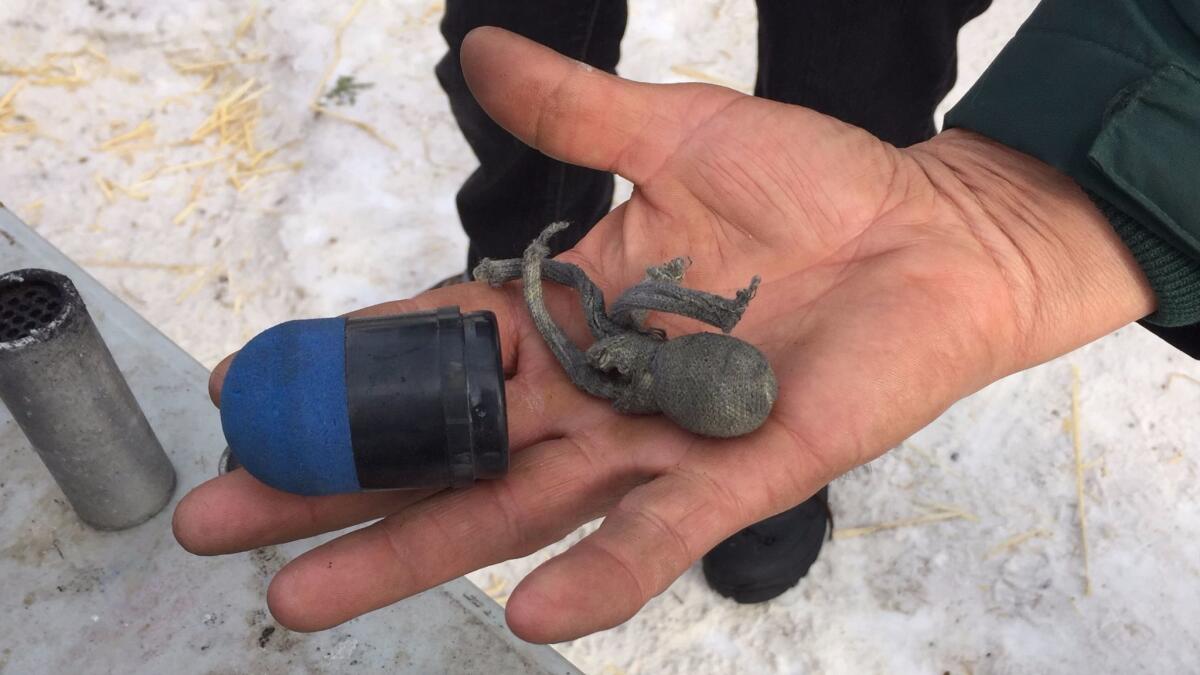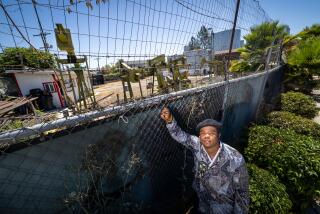Waning days of the Standing Rock protests: An improvised tribe of Americans looking for ‘justice!’

Reporting from Along the Cannonball River, N.D. — Five people who did not know one another a few months ago stood around a campfire talking with passion, wit and pain about how they came to live together here in the cold. Somebody put bacon in a skillet. It was just after noon. The temperature was 17 degrees.
“In weather like this,” explained the man from Kentucky, “you need to keep your calories up.”
Not that anyone seemed cold.
Not Cindy, the grandmother who quit her job in Oregon to be here. Not Chato Duncan, who grew up in Northern California with parents who are from the Dine and Pomo tribes. Not Christopher, the homeless Kentuckian. Not Benji Buffalo, who was raised in the Blackfeet tribe in Montana and, if you ask the others, is the leader of this improvised tribe.
“He’s our chief,” said Duncan.
Of the thousands of people who spent hours or months here protesting the Dakota Access oil pipeline before approval of its final segment this week by the U.S. Army Corps of Engineers, some have had mysterious backgrounds and lengthy arrest records, while others have been prominent and accomplished. At least one, Patricia Arquette, has won an Academy Award.
Some would not share their real name or age or where they work. Some would pray daily for peace. Many, but not all, have been Native American. Some arrived with one group of people only to migrate to another.
They all came to help the Standing Rock Sioux Tribe fight the pipeline, which would carry oil through lands it considers sacred, and beneath a lake that provides its water supply.
The whole illegal immigration thing, hey, this whole country was taken by theft, rape and murder, and then you guys want to talk about legality?
— Duncan, 40
Yet even as they share a common purpose, protesters have been notable for their diversity and fluidity. That helps explain the tension that had been apparent lately, as some people have resisted a request by the Sioux to clean up and clear out so the tribe could shift focus to the legal and political battles ahead with the Trump administration.
But it also might explain the camps’ resilience. Oh, you can track down details about people if you really try. But part of what has drawn and kept many people here has been the chance to see themselves anew in the service of a larger cause, a greater good.
People may be circumspect about themselves, but they have been quick to talk -- expansively, righteously, frequently with deep ache or anger -- about what brought them here.
“As a country, we’re not going to move forward unless we as a people unite in one voice,” said Christopher, who volunteered with a nonprofit called Red Road Awareness, which supports Native American rights. “And it’s not going to start unless us white people start with the people we stole the land from.”
He added, “We were taught a bunch of lies in grade school, you know. History’s not being told accurately. I don’t know my whole ancestry, but I was white enough to understand what privilege is all about.”
Duncan, 40, expanded on the point, putting it in the context of the wall President Trump wants to build on the Mexican border to reduce illegal immigration.
“The whole illegal immigration thing, hey, this whole country was taken by theft, rape and murder, and then you guys want to talk about legality?” Duncan said. “That’s why we have a hard time with the whole American ideal. You know, it just doesn’t make sense.”

Cindy first came last fall for a brief visit. Then she came back with her Winnebago, her skinny dog, Jasmine, and her surprisingly fat cat, Gimly. Repeat: A cat has been camping in foot-deep snow in North Dakota.
“I was going to stay for a couple of days, but then I stayed a little longer,” Cindy said. “And then I went home, said goodbye to my grandkids, quit my job and came back.”
Why?
“Justice!” Buffalo answered for her, feigning passion, ribbing her because he had heard this explanation before.
“Social justice!” Cindy, unruffled, clarified.
For Buffalo, the issue was desecration of what the Standing Rock Sioux say are ancient cultural and burial sites in the path of the pipeline.
“They wouldn’t go plow through the cemetery in town or the veterans’ cemetery,” Buffalo said. “But if any of us ever dug one shovel’s worth out of one of their cemeteries - boom, you’re in jail. And they get to just plow through this? These are our warriors, our family, our people.”
He pointed to small sand-filled bags and large rubber pellets fired by law enforcement officers during a clash near the pipeline site.
“What gives them the right? It’s because they got the more mightier dollar?” Buffalo said. “That doesn’t give them the right. They’re going to have to live with this for the rest of their life.”
ALSO
Native American tribe files legal challenge to stall Dakota Access pipeline
In North Dakota, it could become legal to hit a protester with your car
Seattle becomes the first city to sever ties with Wells Fargo in protest of Dakota Access pipeline
More to Read
Sign up for Essential California
The most important California stories and recommendations in your inbox every morning.
You may occasionally receive promotional content from the Los Angeles Times.











